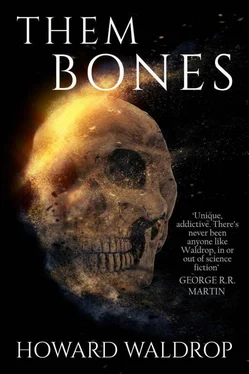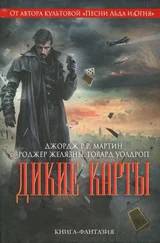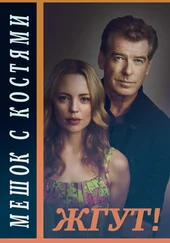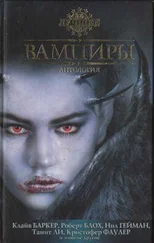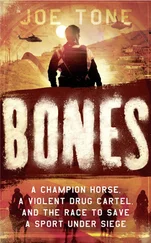What was more likely was that we’d appear just in front of a bulldozer or steamroller or B–25, and be spattered to smithereens when they ran over us.
Ideally where we should come out was on the spot where the airfield would be built, sometime in the 1930s or a little earlier.
There was a jerk and a noise as we came through – a lurch like when an elevator just misses a floor and eases back up to it. The horse felt it too, but I had blinders on him.
I dropped a couple of inches. So did the horse, and it didn’t like it.
I looked around.
Something was very wrong.
Okay, there was no WW II airfield. Good. Better than good.
No construction under way. Better still. That meant before 1942.
But there was no house off up to the south, nothing but forest and grass. No road. No telephone poles.
To the north there was a slope down to where the bayou should be. But the water wasn’t there. I could see it through the trees, about a kilometer away.
The bluff extended behind me to east and west.
The sun was bright. A light wind blew through the grass. There was a sound in the air like a waterfall, very far away. The elevation of this whole part of the state isn’t more than twenty-five meters. The sound couldn’t be a waterfall.
My first job was to secure the area and get out of the way. I threw down the panel marker, pointing northeast, and unlimbered the thirty-cal carbine. A lot of stuff was going to come through the portal in a minute – one hundred forty people, horses, wagons, domestic animals, generators, supplies.
I pulled the horse forward. There were no signs of habitation around. If there were, it would be up to somebody to make excuses. So I don’t have to scoop out a foxhole. Or start explaining to CCC people who I was and where I came from, or what the other hundred and forty people were doing coming out of midair.
The waterfall sound became louder and changed from a quiet roar to a different sound, a drumming whir. I looked to the south, where it seemed to be coming from.
At first I thought it was a tornado and that I was a dead man. A cloud was coming toward me out of the bright sky, and coming fast. But it was thin, and it wasn’t a cloud. It was a wave of birds, a tsunami . I stood transfixed. I had never seen as many birds as this. The column must be a kilometer wide, twenty meters tall. It stretched back out of sight to the southern horizon.
Then the first of them shot overhead, sleek winged shapes – doves? Then more and more, and the flapping became a roar again.
The horse skittered.
The flapping birds were so thick they blotted out the sun. A moving dark shadow covered the clearing and the woods. Thousands of them flew over each second, a couple of hundred meters up. The column stretched southward as far as I could see. Over they went, tiny feathered rockets, moving a hundred kilometers an hour. They never thinned out enough for the sun to show through.
It started to snow. It looked like snow at first, white flakes that swirled down. Then they hit me and the horse, whose flanks twitched with each tiny impact. It wasn’t snow, it was feces. Little warm lumps that came down in a blizzard. The smell was overpowering. I grabbed the reins and pulled the horse toward the shelter of the nearest tree.
What a reception this was going to be for Spaulding and the others. They would step through the portal into semi-darkness and a shit storm. Jesus, the guys who planned this operation never took that into account.
I pulled the horse under the tree. Good thing I hadn’t taken the blinders off it. The birds moved overhead, a rippling of dark and lightness against the sky. Their tapered wings pumped and moved, and still the flock stretched north and south without end. The roar was deafening.
I watched them, and patted the horse to reassure it, and kept an eye on the time portal. The others should have already come through. I waited.
*
And waited and waited.
I couldn’t believe it. I’d been there two hours by the watch and no one else had made it. Something was wrong, up there in the future.
The birds were still flying overhead. I’d almost gotten used to the smell and the noise. The ground, the trees, looked like the first flurries of winter had come. Everything was covered with little mottled white and gray lumps.
The birds looked like doves, but they were bluish-brown and had reddish breasts. When I saw that, I realized how very wrong things had gone up there in the future.
I knew there weren’t this many birds in the world. A column a kilometer across, twenty meters deep, moving overhead at 100 kph, for two hours. I’m not good at maths, but that should be at least a billion.
There aren’t that many birds in the world, but there used to be.
I had seen the last passenger pigeon when I was in Washington eight years ago (when there used to be a Washington). Her name was Martha and she was stuffed. She died on September 1, 1914, when so many things were dying, like the Victorian era.
I also remembered something from my Mississippi childhood. On the Natchez Trace Parkway there was a place we sometimes picnicked. It was called Pigeon Roost Creek. A huge area with a shattered forest. Large trees with branches all broken off. A flock of passenger pigeons had roosted there more than a century before. There were so many of them they broke down the trees in a thirty-square-kilometer area.
Those were passenger pigeons overhead. Billions of them. There hadn’t been any big flocks for twenty years when Martha, last of her species, died. I remember something about a big hailstorm killing most of the last large flock (after the birds had been hunted and trapped by the millions for a century and a half) in the 1880s.
So this was at most the year 1894.
The Project Scientists had been trying for the 1930s. Off by fifty years, perhaps. But the maps we’d studied said the road, as poor as it was, was built in the 1870s.
Was I as far back as the Civil War era?
And where was everybody? Why hadn’t anyone come through the portal? What was wrong?
*
A moment of existential fear, then it passed.
I’m Madison Yazoo Leake. I was not new at this sort of thing. I was in the Cyprus War ten years ago, in ’92. (If you want to call what I did being in war – interrogating Cypriots in internment camps. I never pulled a trigger, thank god, except on the firing range.)
I was from a bombed-out time in which everybody would eventually die from radiation, from disease, from chemicals. I, we, the Special Group, were on a last-chance attempt to keep the human species of the Earth from dying out completely. We were transported through the magic of unperfected, barely tested, one-way time travel, ostensibly to the past, where we hoped to stop World War III before it started. I was, in effect, a point man. (I was a draftee in the Cyprus War, and everybody was a draftee in WW III.)
I still think coming to the past to stop the war involves a time paradox. I mentioned this the other day to one of the Project Scientists.
‘What if we do change everything?’ I’d asked. ‘What if there is no war? What if we make it so you were never born?’
‘What’ll you care?’ she said. ‘ You’ll still be alive.’
Which, as far as I understood it, was true.
So here I was, covered with passenger pigeon excrement (it brushes off after it dries, but I still needed a bath, fairly soon), waiting for the rest of the Special Group to come through.
The flock overhead was thinning. The sun shone more and more through the whirring pigeon overcast. Then it came out in its glory, and only a few stragglers jetted across its face.
Читать дальше
